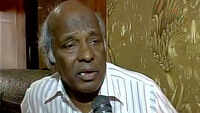
NEW DELHI: With a decision to disband the All India Cotton and Jute Boards, the ministry of textiles has done away with all advisory bodies and justified the move to be in line with the Centre's "minimum government, maximum governance" principle. The ministry has also disbanded the all India handloom, handicrafts and power loom Boards citing that the step was in keeping with the government’s vision for “leaner government machinery and for systematic rationalisation of government bodies”.
TOI had reported earlier this week that the ministry of textiles has also notified a change in the status of all eight Textiles Research Associations (TRAs) saying that they now cease to be “affiliated bodies” of the ministry. The TRAs will now be “approved bodies” for conducting testing, research and developmental activities related to the textiles sector.
The August 6, notification on the Textiles Research Associations states that from now on, “any disposal, sale, transfer of assets created out of central government grant will require prior specific approval of the ministry of textiles.” Also, officials of the ministry representing in the governing bodies of these TRAs have been withdrawn.
The TRAs have been asked to include in their bye-laws the changes that have been notified. The eight TRA include Northern India TRA in Ghaziabad, Ahmedabad Textile Industry Research Association, Bombay TRA, Coimbatore based South India TRA, Synthetic & Art Silk Mills Research Association in Mumbai, Man-Made TRA in Surat, World Research Association in Thane and Kolkata based Indian Jute Industries Research Association.
The notifications to disband the All India Handloom Board, All India Handicrafts Board, All India Powerloom Board, Cotton Advisory Board and Jute Advisory Board were issued between July 27 and August 4. It is learnt that these Boards had become largely redundant over the last few years. The textile ministry website reflects that while the All India Powerloom Board and Handcrafts Boards were last re-constituted in 2013 for a period of two years, the Handloom Board and Jute Advisory Board were reconstituted in 2014 for two years. The Cotton Advisory Board was constituted in 2015 for a period of two years, which was further extended till the re-constitution of new Board as per order in April 2017.
The government's decision to disband the All India Handloom Board and All India Handicrafts Boards has attracted criticism that the dissolution will hurt the sector. With the notifications coming ahead of handloom day on August 7, Dastkar chairman Laila Tyabji, in a post on social media on August 5 said the decisions came as a complete surprise. “All these years on, it remained the one official forum, however, watered down, where the voices and views of weavers and craftspeople could be expressed directly. One place where representatives of the sector were present in considerable numbers and were actually empowered to advise the government in policy and sectorial spending,” she posted on her Facebook wall.
On the other hand, Dastkari Haat Samiti founder and social activist Jaya Jaitly described the abolition of the boards as a step in the right direction. “I am glad it has been abolished. It was made gradually useless since the beginning of 1990s and declined. No point renovating a dead object. It is best to be rid of it and create something new, effective, dynamic with inputs from truly experienced and knowledgeable persons rather than use it for the patronage of favourites."
Government sources, however, said the boards have fallen into disuse and do not serve the purpose for which they were envisioned. The structure of these boards made room for a large number of non-official members to advise the government. According to government sources, the decision to disband the Boards follows an assessment that the boards were merely advisory in nature and failed to impact on influencing policy-making while they became vehicles of "political patronage" with the emergence of a ‘middleman culture’ that did not help the interests of weavers. On the way forward, senior officials pointed out that the focus is now on field officers who have the responsibility to reach out to weavers and create links with the district, state and central administrations.
Meanwhile, that there is a growing focus on the textiles sector within the government was evident on “National Handloom Day” on August 7 when Prime Minister Narendra Modi and many of his cabinet colleagues including union home minister Amit Shah finance minister Nirmala Sitharaman, external affairs minister S Jaishankar, textiles minister Smriti Irani and commerce minister Piyush Goyal took to social media asking people to be "vocal for handmade products.
TOI had reported earlier this week that the ministry of textiles has also notified a change in the status of all eight Textiles Research Associations (TRAs) saying that they now cease to be “affiliated bodies” of the ministry. The TRAs will now be “approved bodies” for conducting testing, research and developmental activities related to the textiles sector.
The August 6, notification on the Textiles Research Associations states that from now on, “any disposal, sale, transfer of assets created out of central government grant will require prior specific approval of the ministry of textiles.” Also, officials of the ministry representing in the governing bodies of these TRAs have been withdrawn.
The TRAs have been asked to include in their bye-laws the changes that have been notified. The eight TRA include Northern India TRA in Ghaziabad, Ahmedabad Textile Industry Research Association, Bombay TRA, Coimbatore based South India TRA, Synthetic & Art Silk Mills Research Association in Mumbai, Man-Made TRA in Surat, World Research Association in Thane and Kolkata based Indian Jute Industries Research Association.
The notifications to disband the All India Handloom Board, All India Handicrafts Board, All India Powerloom Board, Cotton Advisory Board and Jute Advisory Board were issued between July 27 and August 4. It is learnt that these Boards had become largely redundant over the last few years. The textile ministry website reflects that while the All India Powerloom Board and Handcrafts Boards were last re-constituted in 2013 for a period of two years, the Handloom Board and Jute Advisory Board were reconstituted in 2014 for two years. The Cotton Advisory Board was constituted in 2015 for a period of two years, which was further extended till the re-constitution of new Board as per order in April 2017.
The government's decision to disband the All India Handloom Board and All India Handicrafts Boards has attracted criticism that the dissolution will hurt the sector. With the notifications coming ahead of handloom day on August 7, Dastkar chairman Laila Tyabji, in a post on social media on August 5 said the decisions came as a complete surprise. “All these years on, it remained the one official forum, however, watered down, where the voices and views of weavers and craftspeople could be expressed directly. One place where representatives of the sector were present in considerable numbers and were actually empowered to advise the government in policy and sectorial spending,” she posted on her Facebook wall.
On the other hand, Dastkari Haat Samiti founder and social activist Jaya Jaitly described the abolition of the boards as a step in the right direction. “I am glad it has been abolished. It was made gradually useless since the beginning of 1990s and declined. No point renovating a dead object. It is best to be rid of it and create something new, effective, dynamic with inputs from truly experienced and knowledgeable persons rather than use it for the patronage of favourites."
Government sources, however, said the boards have fallen into disuse and do not serve the purpose for which they were envisioned. The structure of these boards made room for a large number of non-official members to advise the government. According to government sources, the decision to disband the Boards follows an assessment that the boards were merely advisory in nature and failed to impact on influencing policy-making while they became vehicles of "political patronage" with the emergence of a ‘middleman culture’ that did not help the interests of weavers. On the way forward, senior officials pointed out that the focus is now on field officers who have the responsibility to reach out to weavers and create links with the district, state and central administrations.
Meanwhile, that there is a growing focus on the textiles sector within the government was evident on “National Handloom Day” on August 7 when Prime Minister Narendra Modi and many of his cabinet colleagues including union home minister Amit Shah finance minister Nirmala Sitharaman, external affairs minister S Jaishankar, textiles minister Smriti Irani and commerce minister Piyush Goyal took to social media asking people to be "vocal for handmade products.
Download
The Times of India News App for Latest India News

Coronavirus outbreak
Trending Topics
LATEST VIDEOS
India
 Need to increase testing in Bihar, Gujarat, UP, WB & Telangana: Health Ministry
Need to increase testing in Bihar, Gujarat, UP, WB & Telangana: Health Ministry  COVID-19 fatality rate in India dips to 1.99%: Health Ministry
COVID-19 fatality rate in India dips to 1.99%: Health Ministry  Government apathy leaves tourism and sports infra tottering in PoK
Government apathy leaves tourism and sports infra tottering in PoK  Madhya Pradesh: Snake hiding in shoe bites Panna SP
Madhya Pradesh: Snake hiding in shoe bites Panna SP  Wide body aircraft barred from Calicut for this monsoon
Wide body aircraft barred from Calicut for this monsoon  Poet Rahat Indori dies in Indore hospital
Poet Rahat Indori dies in Indore hospital
More from TOI
Navbharat Times
Featured Today in Travel
Quick Links
Coronavirus in MumbaiCoronavirus in KolkataCoronavirus in HyderabadCoronavirus in DelhiCoronavirus in BangaloreCoronavirus symptomsCoronavirus in IndiaWhat is CoronavirusCoronavirus NewsSolar EclipseNPRWhat is NRCCAB BillCAB and NRCRTI BillPodcast newsLok SabhaShiv SenaYSRCPCongressBJP newsUIDAIIndian ArmyISRO newsSupreme Court
Get the app



